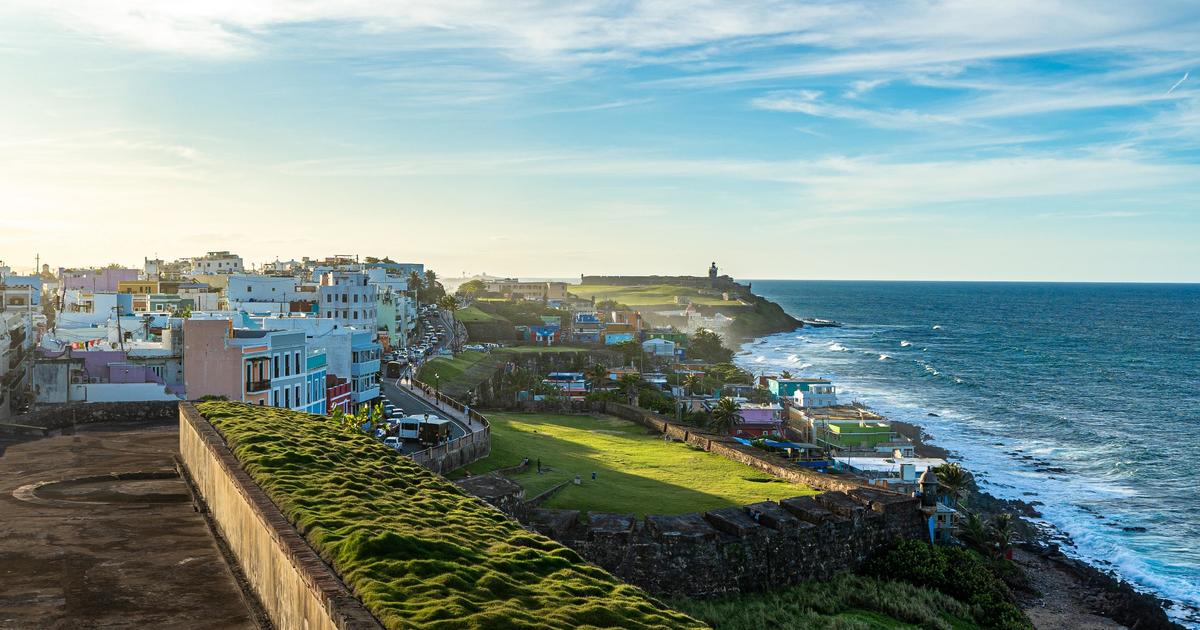A group of Democratic House members is demanding the Internal Revenue Service accelerate its investigation into wealthy Americans who are allegedly illegally taking advantage of a generous tax incentive in Puerto Rico.
Rep. Nydia Velazquez, Democrat of New York, and a dozen colleagues sent a letter to the IRS late last week calling on the IRS to crack down on the noncompliant behavior of about 100 rich Americans claiming extraordinary tax breaks under what’s known as Act 60, which benefits Americans who relocate to Puerto Rico and become bona fide residents. In 2019, Act 60 consolidated two tax havens, Act 22, which applies to individual investors, and Act 20, used for export services companies.
The provision provides these new residents of Puerto Rico with a 100% federal tax exemption from Puerto Rico-sourced income, interest, dividend and capital gains income.
The incentive program, which is overseen by Puerto Rico’s Department of Economic Development and Commerce (DEDC), isn’t available to native residents, who sometimes face tax rates as high as 33% — or to those who became residents before 2012, when the tax benefits were enacted.
It was set up as a way to lure rich mainland Americans to move to Puerto Rico to help boost its economy by building businesses and creating jobs for the island.
But for years, Puerto Rico failed to verify that those taking advantage of the tax haven were in compliance, according to the Center for Investigative Journalism of Puerto Rico. It wasn’t until 2021 that the DEDC started to audit the program and its approximately 5,000 beneficiaries. No findings have been announced.
In July, the IRS said it had identified 100 individuals claiming the tax benefits in the U.S. territory who were violating the rules. Beneficiaries must buy a home on the island within two years of becoming Puerto Rico residents, are required to spend half their time there, pay federal taxes on income earned in the U.S. and must also give $10,000 annually to approved Puerto Rican charities.
“These wealthy individuals are attempting to avoid U.S. taxation on U.S. source income, and we expect many of these cases to proceed to criminal investigation,” the IRS said in its July press release.
In response to a Freedom of Information Act request filed by Puerto Rican and U.S. advocacy groups, the IRS said initially that it planned to release documents stemming from its audit by the summer, the lawmakers’ letter said, adding that the groups were informed by the IRS that the date for that release had slipped to December.
“The IRS and Treasury Department must make Act 22 enforcement a priority and shed light on their oversight of U.S. individuals unlawfully claiming benefits under this law, ” Velazquez said in a statement.
In their letter to the IRS, Democratic lawmakers suggested that even those who may technically be in compliance are taking advantage of the law to force Puerto Ricans out of their homes.
“The tax haven that Act 22 has created in Puerto Rico has proliferated the use of short term rentals (“STRs”), increased cash property sales and market speculation, and caused displacement for the Puerto Rican people themselves,” the letter says.
“What we have seen is the exacerbation of displacement as a result of these beneficiaries, you know, they come in, they don’t pay taxes, they have cash, so they speculate on real estate, a property that would probably cost $100,000 now cost $300,000, half a million. And that has obviously exacerbated the housing crisis in Puerto Rico,” Marlyn Goyco, national organizing manager for the Center for Popular Democracy, told CBS News.
The skyrocketing prices are putting home ownership out of reach for many Puerto Ricans, whose median household income is $21,967. At least 41% of the population live in poverty, according to the U.S. Census Bureau. At the same time, housing prices on the island have spiked at least 36% in the last five years, Federal Housing Finance Agency data indicates.
The lawmakers point out that Act 22 has resulted in loss of income to the U.S. Treasury, too, noting that 647 people who have become Puerto Rico residents and use the tax benefit altogether paid over $500 million in federal income taxes in the five years before they relocated to the island. That small statistic, they said, offers “a glimpse into the critical revenue that the United States is losing due to the tax evasion scheme created by Act 22.”
The IRS has not yet responded to a request for comment.
Because it’s uncertain when the IRS investigation will conclude and when the local government will decide to publish its findings about the beneficiaries of the program, Goyco says the biggest concern is the “unaffordability of living in Puerto Rico.”
“We have the highest sales tax. We also get the highest electric bill,” Goyco said. “Our concern is that it’s going to be a Puerto Rico without Puerto Ricans because it’s just becoming increasingly hard for people to live here,” she added.
“For young people that go to university, there’s not enough opportunities to work, and the thing is, this law does not provide any of that. If anything, it’s just bringing people in to live here in paradise without having to pay and to support their communities,” Goyco added.





